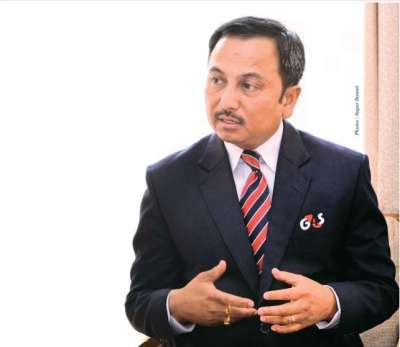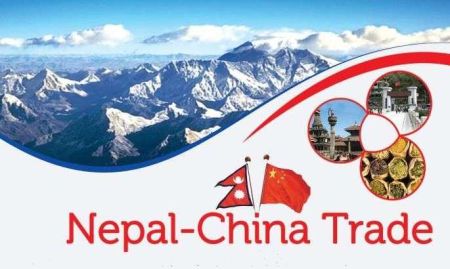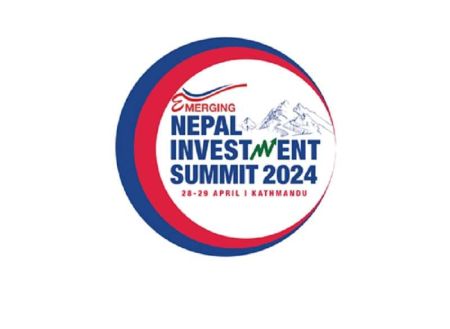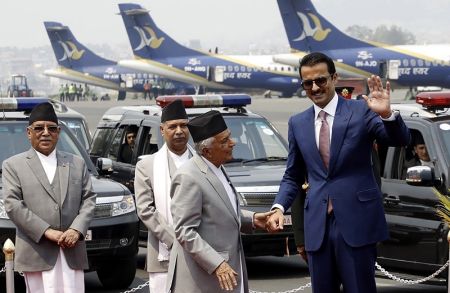.jpg) The World Bank Group (WBG) says Nepal is a priority country for it. Internaional Finance Corporation (IFC), is a member of WBG and through it the WBG is enhancing its engagement in Nepal by way of both Investment Services and Advisory Services. To facilitate private sector growth in Nepal, IFC works to promote private investment in infrastructure, tourism, financial markets, transportation, and trade finance. Through advisory services, IFC contributes to increasing access to finance for businesses, making it easier to do business, facilitating public-private dialogue for policy reforms, and promoting regional trades.
The World Bank Group (WBG) says Nepal is a priority country for it. Internaional Finance Corporation (IFC), is a member of WBG and through it the WBG is enhancing its engagement in Nepal by way of both Investment Services and Advisory Services. To facilitate private sector growth in Nepal, IFC works to promote private investment in infrastructure, tourism, financial markets, transportation, and trade finance. Through advisory services, IFC contributes to increasing access to finance for businesses, making it easier to do business, facilitating public-private dialogue for policy reforms, and promoting regional trades.
Recently, Jingdong Hua, Vice President, Treasury and Syndications of IFC had visited Nepal. He talked with Siromani Dhungana of New Business Age about role of IFC to strengthen Nepal’s Private sector.
Excerpts:
The main objective of your mission is to sensitise the Nepali policymakers and opinion makers on the importance of developing local capital markets as the foundation for sustainable growth. What prompted the IFC to pursue this particular objective?
IFC has been a pioneer in promoting and developing local capital market. As a matter of fact, in the last 10 years, IFC has provided over $10 billion in 60 different local currencies. The reason is very simple. We help private sector entrepreneur. In case of most of our private entrepreneurs, their business generates revenue in local currencies and generates many local friends. We want entrepreneurs to focus to grow their business instead of worrying about foreign exchange facilities. At a micro level that is the motivation. And at the macro level, the motivation is the foundation for the growth of the capital market. You need a vibrantly liquid capital market support from where the private entrepreneurs can efficiently finance their operation depending on the risk of the capital.
Over the past several years, our team in Nepal has been working tirelessly in terms of supporting the power sector in the country with hydropower being the most common sector. That truly is the bottom line. We need to unlock the country to political advantage of its economic potential and some of the hydropower projects do generate local currency revenue. We have been engaging with the government for several years in terms of starting the dialogue, presenting the rationale and explaining the mechanical process. We are happy that we are getting encouraging support from the government. We are waiting for a green signal from the government about regulatory approval. We are very optimistic that the government will be supporting us.
What can the media do to help in this matter?
Media plays an important role to sensitise the citizen on the experience of other emerging countries who have benefitted from open and vibrant capital market. It can also highlight the IFC project about how critically they are helping to resolve the infrastructural performance so as to unlock economic opportunity in different sectors.
IFC has been planning to issue local currency bond in Nepal. Could you please highlight the logic behind this?
Our projects require local currency financing. To issue these bonds in the Nepali market, there needs to be a regulatory approval from the government for which there is a process. And we are engaging with the government. We are hopeful that in the near future, we will be able to obtain that approval.
What impediments do you see in successful implementation of this idea?
We are very optimistic that it will be very successful. As a matter of fact, we have opened three other new markets elsewhere in the world during the last four months. For instance, we have issued local currency bond in The Dominican Republic and in Nigeria. In both cases, those were the first ever foreign bonds issued in local currency in the two countries. While in Russia, we issued the biggest bond by foreign issuer with a very innovative feature of linking coupon rate with inflation target index. We have a lot of experience working with the local pension fund, insurance company, local bank, and local investment community to showcase the benefit from different perspectives.
What do you have to say to the Nepali private sector that is focusing more on the problems of getting foreign capital than on local currency funds?
For the market to be recognised by the foreign investors to attract more foreign direct investment, there has to be an environment that enables the private sector to survive. Stable regulatory framework too is required to support foreign investment.Also needed are some critical early success example which demonstrate that the market is viable and ready. There are many things to be developed in terms of capital market. As it needs regulatory framework, market infrastructure and capital market player, the government should regularly facilitate and support the process. It is a long term process and IFC is committed to help Nepal in every way.
The idea of utilising the local capital market for raising capital to invest in infrastructure projects is being floated for quite some time in Nepal but nothing concrete could be achieved so far. What was lacking in those ideas generated locally?
IFC issues local currency denominated bonds. It is not just the domestic investor who can buy; foreign investor can also buy if they feel comfortable investing in Nepali rupees. The local currency bond can also attract foreign investors. It has to ensure safety in terms of settlement and investment in the market so that other players can invest on the basis of that.
How do you see the progress of IFC’s investments in Nepal?
I have visited Buddha Air and had a conversation with the owner directly and how critical our financing is. So it would be beneficial if we not only provide critical financing but also the advisory support on how to improve their management and safety.























